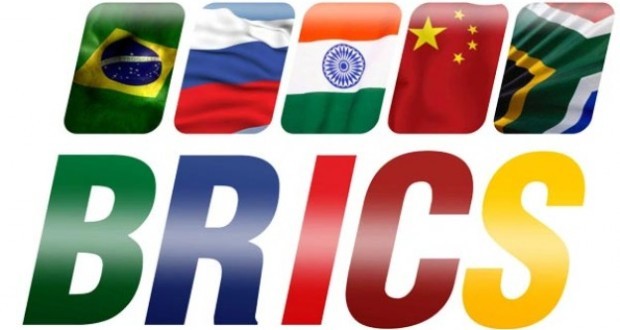Vadim Lukov / BRICS and the UN : relationship which will generate new future

All BRICS states regard the UN as the central element of the international systеm, and it's Security Council as the organ bearing the principal responsibility for maintaining the international peace and security. Their actions in the UN are aimed at strengthening this organization, acting in cooperation with like-minded countries first of all from the developing world.
The BRICS countries have to act in a difficult setting.
A number of countries seek to undermine the central role of the UN and its Security Council in the international community by creating "coalitions of the willing" which bypass the UN . These countries regard BRICS as their principal competitor and act accordingly, trying to disrupt the unity of this group.
The UN system itself needs modernization . Consolidated actions of BRICS partners are required to lead the reform process.
BRICS countries are underrepresented in the top echelons of the UN management in which mainly Western countries occupy key positions .
However there are trends and factors which play in the hand of BRICS partners. Majority of developing countries regard the UN as an important asset for promoting their status and interests in the world and, like BRICS, oppose devaluation of the Organization through "coalitions of the willing". BRICS itself is becoming a tangible factor in the UN institutions, although its voice should be made louder, and the approach to the UN and its problems more systemic rather than ad hoc. BRICS actions in the UN correspond to the profound trend in international systеm towards multilateralism and multipolarity.
National strategies and plans of all BRICS countries rely on the decisions taken by summits of the Forum and coinside in their main features . There is, however, a certain difference in approaches of India, Brazil and South Africa which aspire to be permanent members of the Security Council . Russia and China support
them, considering that this should be done on the basis of intergovernmental negotiations currently underway at the UN.
Scenarios of deveplomemt of BRICS positions in the UN heavily depend on the general political situation in the world and per force are difficult to predict. One may say with certainty the following :
- a lot will depend on the economic development of BRICS nations
- the crucial factor will remain the unity of BRICS nations and degree of their support by developing countries.
To attain their goals BRICS countries could undertake the following :
1. To strengten the role of the UN SC and to promote it's reform on the basis of widest possible support by member countries of the intermediate option of the reform. To firmly resist attempts to legitimize unilateral sanctions through the UN SC.
2. To strengthen the process of consultations of BRICS Permanent Representatives at the UN in New York on key issues of the agenda of the UN SC and UN GA , first of all on the Middle East and North Africa.
The goal should be to elaborate joint draft resolutions of the UN GA and common approaches at the UN SC of permanent and non-permanent members from BRICS.
3. To promote creation in ECOSOC of a coalition of countries supporting the socioeconomic agenda of BRICS. The core of the coalition could be the group of like-minded countries which exist in the G20.
4. To more actively promote cooperation between BRICS and the UN in the format of outreach . Its level should be raised , its scope should be extended and it should be made regular.
To these ends BRICS could undertake the following :
- to probe the attitude of the UN Secretary General to his possible invitation to the BRICS summit.
- to extend the practice of participation of heads of the UN specialised agencies in BRICS ministerial meetings , with the prospect of contacts at the expert level
- to introduce the practice of sending
personal messages from the current Chair of BRICS to the Chair of the session of the UN GA and the UN SC on results of the summits and topical issues of the UN agenda.
5. To evnvigorate BRICS cooperation in UNESCO - having in mind the growing importance of the cultural dimension of international relations . To consider, in particular, the proposal to make a joint contribution to restoration of Palmira.
6. To come forward with the proposal of holding under the UN auspices a conference on ways of strengthening the role of the international law and on peaceful settlement of conflicts.
7. To consider the proposal of publication of a joint BRICS manual of international public law as an input into BRICS efforts to strengten the role of the law in world politics.


